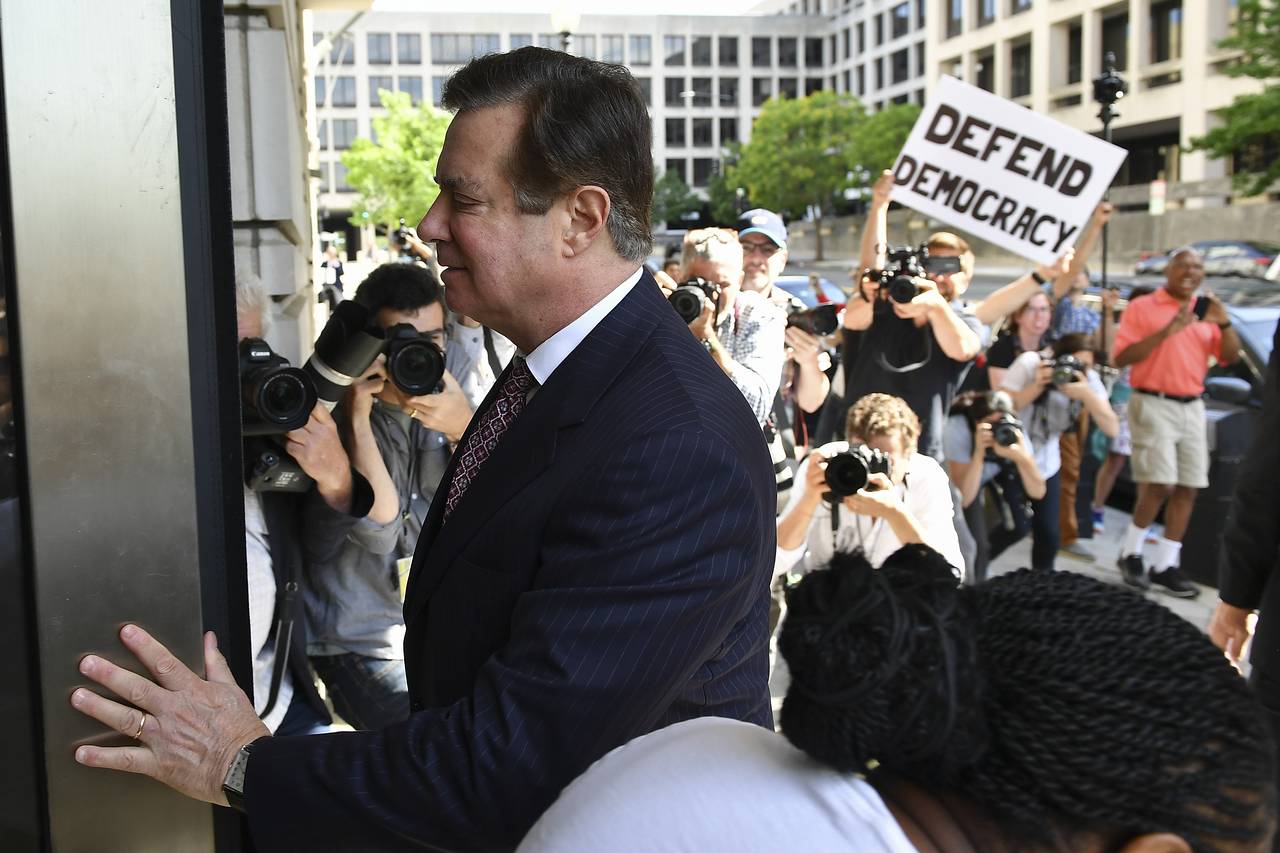
Ben Zimmer
Ben Zimmer has written the Word on the Street column for The Wall Street Journal since June 2013. Previously, he was the language columnist for the Boston Globe and the New York Times Magazine (succeeding William Safire). He has also worked as the executive editor of Vocabulary.com and the Visual Thesaurus, two websites for language lovers. He serves as chair of the New Words Committee of the American Dialect Society and oversees the society's selection of Word of the Year.
Paul Manafort arriving at U.S. District Court on June 15 in Washington. PHOTO: MANDEL NGAN/AFP/GETTY IMAGES
The word, cited by the judge in the Paul Manafort trial, came into the limelight after the breakup of the Soviet Union.
As the trial of President Donald Trump’s former campaign manager Paul Manafort continues, prosecutors have been warned by the presiding judge to avoid using one word in particular: "oligarch.”
U.S. District Judge T.S. Ellis, who has made a point of reining in prosecutors for special counsel Robert Mueller, took offense to the word "oligarch” when one prosecutor, Greg Andres, used it last week to describe the wealthy backers of former Ukrainian President Viktor Yanukovych, a longtime client of Mr. Manafort.
As reported by the Washington Post and others, Judge Ellis said that characterizing these associates of Mr. Manafort as "oligarchs” was "pejorative.” The word implied that Mr. Manafort "associated with despicable people and therefore he’s despicable,” and he instructed prosecutors to "find another term to use” that did not carry such a negative connotation.
Bloomberg Opinion columnist Leonid Bershidsky, a Russia-born journalist based in Berlin, echoed the judge’s distaste for "oligarch” and took it one step further, arguing that "the news and politics realms, too, should take heed of this astute instruction.”
"The catchall term ‘oligarch’ distorts a complex reality,” Mr. Bershidsky wrote.
How did "oligarch” become so nefarious-sounding? Dictionaries define the term as a member or supporter of an "oligarchy,” in turn defined by Merriam-Webster as "a government in which a small group exercises control especially for corrupt and selfish purposes.”
The ancient Greek root "oligarkhia” comes from "oligoi” meaning "few” and "arkhein” meaning "to rule.” According to the political theory of Aristotle, the "oligoi” or select few who hold the power in an oligarchic system are inevitably wealthy or well-born, aligning "oligarchy” with a similar term: "plutocracy,” or the rule of the rich.
While many despotic regimes have been characterized as "oligarchies” since the word entered English in the 16th century, it was the breakup of the Soviet Union that brought "oligarchs” into the limelight. As Thomas Graham, managing director at Kissinger Associates and a senior fellow at Yale’s Jackson Institute for Global Affairs, recently told CNN, the term came into use in the mid-1990s when Russia and other former Soviet states made the uneasy transition to capitalism, and formerly state-owned industries fell into private hands. David Remnick wrote of the transfer of wealth in a 1997 essay for Foreign Affairs: "The new oligarchs, both within and outside the Kremlin, see themselves as undeniably lucky, but worthy as well.”
Under Boris Yeltsin, some of these superrich industrialists held substantial political power, making them "poligarchs,” to use a term coined by the Hungarian sociologist Bálint Magyar. Vladimir Putin forced the oligarchs to cede their direct sway over the government but allowed them to keep their immense wealth. Kremlin spokesman Dmitry Peskov told reporters in April that "the phrase ‘Russian oligarchs’ is considered inappropriate” in the Putin era. "The time when there were oligarchs in Russia passed long ago. There are no oligarchs in Russia,” Mr. Peskov claimed.
Mr. Mueller’s office clearly feels otherwise, as does the U.S. Treasury Department, which has placed sanctions on several Russian businessmen allied with Mr. Putin, calling them "oligarchs and elites” who profit from the government’s "malign activity.”



_jpg/250px-ElbeDay1945_(NARA_ww2-121).jpg)





